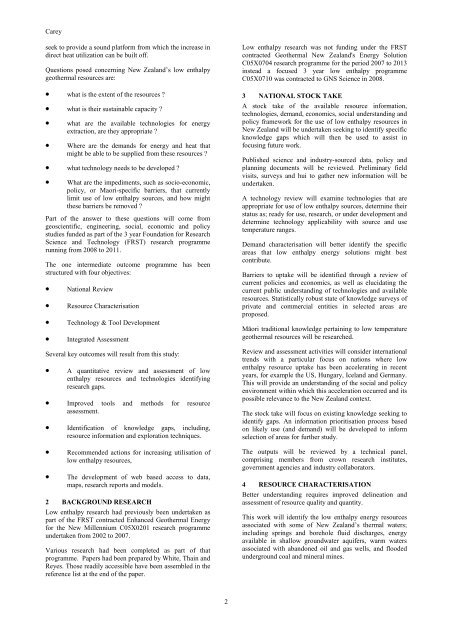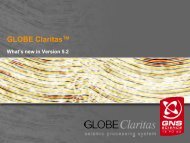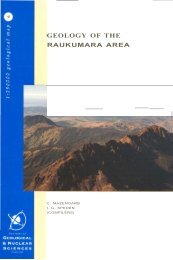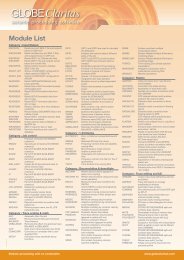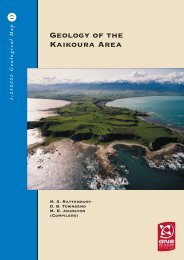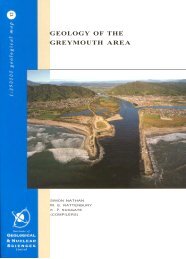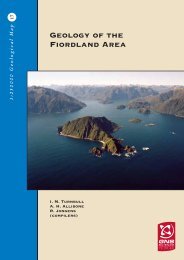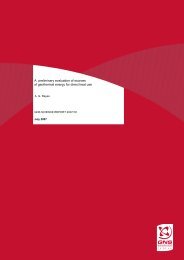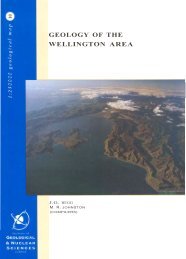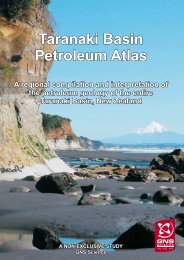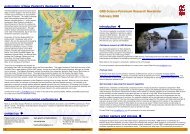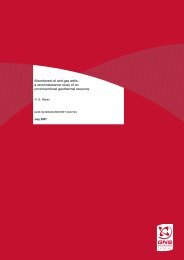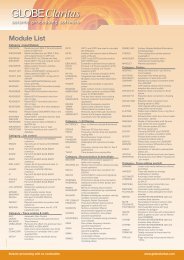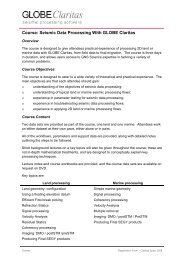Low Enthalpy Geothermal Research â New Zealand - GNS Science
Low Enthalpy Geothermal Research â New Zealand - GNS Science
Low Enthalpy Geothermal Research â New Zealand - GNS Science
Create successful ePaper yourself
Turn your PDF publications into a flip-book with our unique Google optimized e-Paper software.
Careyseek to provide a sound platform from which the increase indirect heat utilization can be built off.Questions posed concerning <strong>New</strong> <strong>Zealand</strong>’s low enthalpygeothermal resources are:• what is the extent of the resources ?• what is their sustainable capacity ?• what are the available technologies for energyextraction, are they appropriate ?• Where are the demands for energy and heat thatmight be able to be supplied from these resources ?• what technology needs to be developed ?• What are the impediments, such as socio-economic,policy, or Maori-specific barriers, that currentlylimit use of low enthalpy sources, and how mightthese barriers be removed ?Part of the answer to these questions will come fromgeoscientific, engineering, social, economic and policystudies funded as part of the 3 year Foundation for <strong>Research</strong><strong>Science</strong> and Technology (FRST) research programmerunning from 2008 to 2011.The one intermediate outcome programme has beenstructured with four objectives:• National Review• Resource Characterisation• Technology & Tool Development• Integrated AssessmentSeveral key outcomes will result from this study:• A quantitative review and assessment of lowenthalpy resources and technologies identifyingresearch gaps.• Improved tools and methods for resourceassessment.• Identification of knowledge gaps, including,resource information and exploration techniques.• Recommended actions for increasing utilisation oflow enthalpy resources,• The development of web based access to data,maps, research reports and models.2 BACKGROUND RESEARCH<strong>Low</strong> enthalpy research had previously been undertaken aspart of the FRST contracted Enhanced <strong>Geothermal</strong> Energyfor the <strong>New</strong> Millennium C05X0201 research programmeundertaken from 2002 to 2007.Various research had been completed as part of thatprogramme. Papers had been prepared by White, Thain andReyes. Those readily accessible have been assembled in thereference list at the end of the paper.<strong>Low</strong> enthalpy research was not funding under the FRSTcontracted <strong>Geothermal</strong> <strong>New</strong> <strong>Zealand</strong>'s Energy SolutionC05X0704 research programme for the period 2007 to 2013instead a focused 3 year low enthalpy programmeC05X0710 was contracted to <strong>GNS</strong> <strong>Science</strong> in 2008.3 NATIONAL STOCK TAKEA stock take of the available resource information,technologies, demand, economics, social understanding andpolicy framework for the use of low enthalpy resources in<strong>New</strong> <strong>Zealand</strong> will be undertaken seeking to identify specificknowledge gaps which will then be used to assist infocusing future work.Published science and industry-sourced data, policy andplanning documents will be reviewed. Preliminary fieldvisits, surveys and hui to gather new information will beundertaken.A technology review will examine technologies that areappropriate for use of low enthalpy sources, determine theirstatus as; ready for use, research, or under development anddetermine technology applicability with source and usetemperature ranges.Demand characterisation will better identify the specificareas that low enthalpy energy solutions might bestcontribute.Barriers to uptake will be identified through a review ofcurrent policies and economics, as well as elucidating thecurrent public understanding of technologies and availableresources. Statistically robust state of knowledge surveys ofprivate and commercial entities in selected areas areproposed.Māori traditional knowledge pertaining to low temperaturegeothermal resources will be researched.Review and assessment activities will consider internationaltrends with a particular focus on nations where lowenthalpy resource uptake has been accelerating in recentyears, for example the US, Hungary, Iceland and Germany.This will provide an understanding of the social and policyenvironment within which this acceleration occurred and itspossible relevance to the <strong>New</strong> <strong>Zealand</strong> context.The stock take will focus on existing knowledge seeking toidentify gaps. An information prioritisation process basedon likely use (and demand) will be developed to informselection of areas for further study.The outputs will be reviewed by a technical panel,comprising members from crown research institutes,government agencies and industry collaborators.4 RESOURCE CHARACTERISATIONBetter understanding requires improved delineation andassessment of resource quality and quantity.This work will identify the low enthalpy energy resourcesassociated with some of <strong>New</strong> <strong>Zealand</strong>’s thermal waters;including springs and borehole fluid discharges, energyavailable in shallow groundwater aquifers, warm watersassociated with abandoned oil and gas wells, and floodedunderground coal and mineral mines.2


